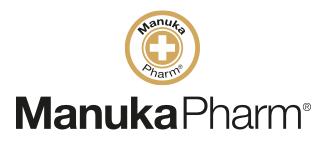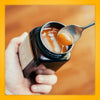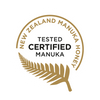Welcome to the world of CBD! This is a global wellbeing trend like none other – spanning continents and age groups, gracing shelves in high street shops, holistic healthcare practices and science labs alike. Never before has one product seen such an explosion of global interest. But of course, cannabis (or hemp) from which CBD oil is usually derived, is much more than just a fad. This oil so many now know and love, is simply a refined version of one of the world’s most ancient and well-used plants – banished into the shadows on prohibition for 100 years, only to make an extraordinary (and long overdue) comeback.
For many years we were led to believe that cannabis was bad – a drug of choice for hippies, layabout stoners and hardened criminals. But this is only a picture that has been painted since the end of alcohol prohibition. Before that, cannabis was a huge part of human life – whether used as a pain killer, in cough syrup, as sturdy fibre for rope, sails and clothes or a superb source of nutrition. It always had been. Hopefully, from here on out, it always will be.
Science has come a long way since the days of selling rudimentary cannabis tinctures in chemists. We now have over 41,000 studies exploring the potential benefits of cannabis – specifically looking at the 147 known ‘cannabinoids’ present in the flowers and leaves, the aromatic compounds called ‘terpenes’, flavonoids and even our own endocannabinoid system, with which cannabis (and CBD oil) interacts.
Cannabidiol (perhaps better known as CBD) is the most abundant cannabinoid in the hemp plant – a fibrous form of cannabis with little to no THC, the cannabinoid best known for getting you high. And this is the cannabinoid that is now best understood and widely utilised in a dizzying array of CBD oil products.
How does CBD oil work?
You can buy three types of CBD – full spectrum (whole plant), broad spectrum and isolate.
- Full spectrum contains a range (usually at least 5 or 6) different cannabinoids and terpenes, including a very small, legal amount of THC that is not enough to make you feel stoned.
- Broad spectrum is similar, although often with fewer cannabinoids and zero THC.
- CBD isolate products contain just the CBD molecule on its own.
It’s important to understand the difference between these products as every cannabinoid works in a different way, and when cannabinoids are used together (as in full spectrum oils) they produce something called ‘the entourage effect’, which many experts believe is the best way to use cannabinoids for a well-rounded result. However, others prefer to forgo the THC with a broad spectrum oil (perhaps if the user is a professional athlete, subject to drug testing). Or use CBD isolate, as a large number of the studies we have determining the remarkable potential of cannabis focus on CBD and THC isolates.
Whichever CBD oil you choose (in the UK), CBD will always be present in much higher levels than other cannabinoids, so the actions of CBD are the ones we will explore today.
What is CBD?
Cannabidiol (CBD) is one of 147 known cannabinoids in the cannabis plant. It is deemed non-addictive and perfectly safe to use by the World Health Organisation. It’s pleotropic, (meaning it has multiple actions via a variety of molecular pathways in the body) and its mechanisms are adaptogenic by nature, responding to the unique needs of the user. This is partly why the effects of CBD oil can be so far reaching and sometimes even opposing – for example, promoting a better night’s sleep while boosting energy levels in the day. The actions are also biphasic, which means they can vary depending on the dose.
CBD & The Endocannabinoid System
Although CBD acts on a number of receptors in the body, including serotonin (mood, digestion, sexual function and more) and vanilloid (pain transmission), it’s perhaps most famous for its interaction with the endocannabinoid system (ECS).
The ECS has been referred to as ‘the most important physiological system for maintaining human health’, due to the fact that its job is to regulate all bodily functions. In very simplistic terms (we’ll go into this further in a separate article), it does this through being activated by endocannabinoids, that are produced when the body is under some form of physical or emotional stress, to bring all processes back into balance.
Although the CBD molecule doesn’t directly activate the ECS (other cannabinoids like THC and CBG do), it supports the whole system by inhibiting the enzyme that breaks our endocannabinoids down, therefore resulting in higher levels in the body and a perfectly activated system.
Will CBD oil get me high?
No, CBD oil will not get you high – and that includes full spectrum oils with a small amount of THC present.
How much CBD oil should I take?
Dosage of CBD oil is unique to the user and depends on a number of factors including reason for use, endocannabinoid tone and blood volume. Start with a low strength CBD oil and the best way to find your dose is to take a couple of drops under the tongue 3x a day. Build up drop by drop from there until you feel you’ve reached the right dose for you.
There’s good reason why CBD has taken the world by storm. There are now millions of fans worldwide who will shout from the rooftops about how this simple supplement has changed their lives. Are you ready to join them?
You can read more of Ruby's blogs here
Or find out more about her work at www.rubydeevoy.com



















